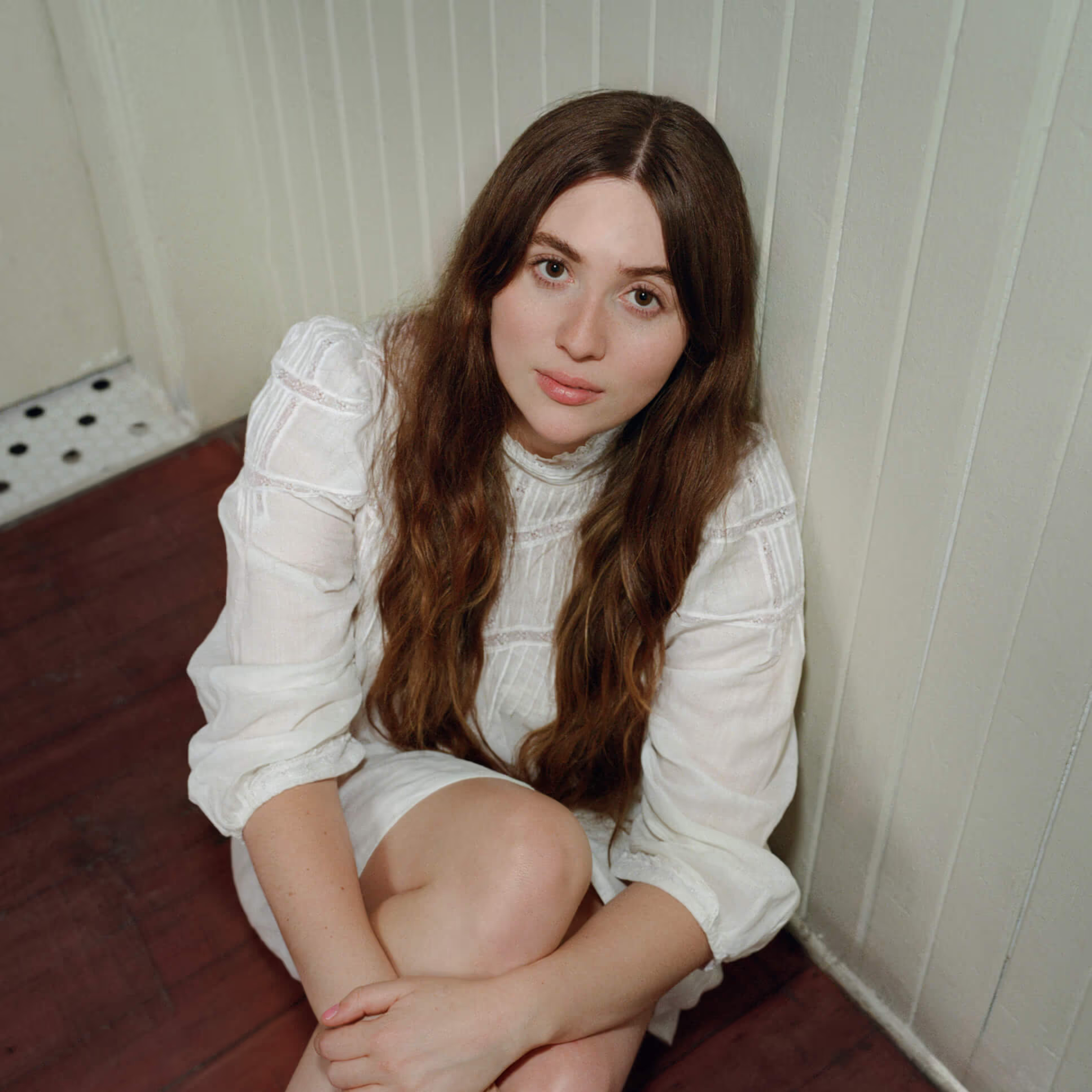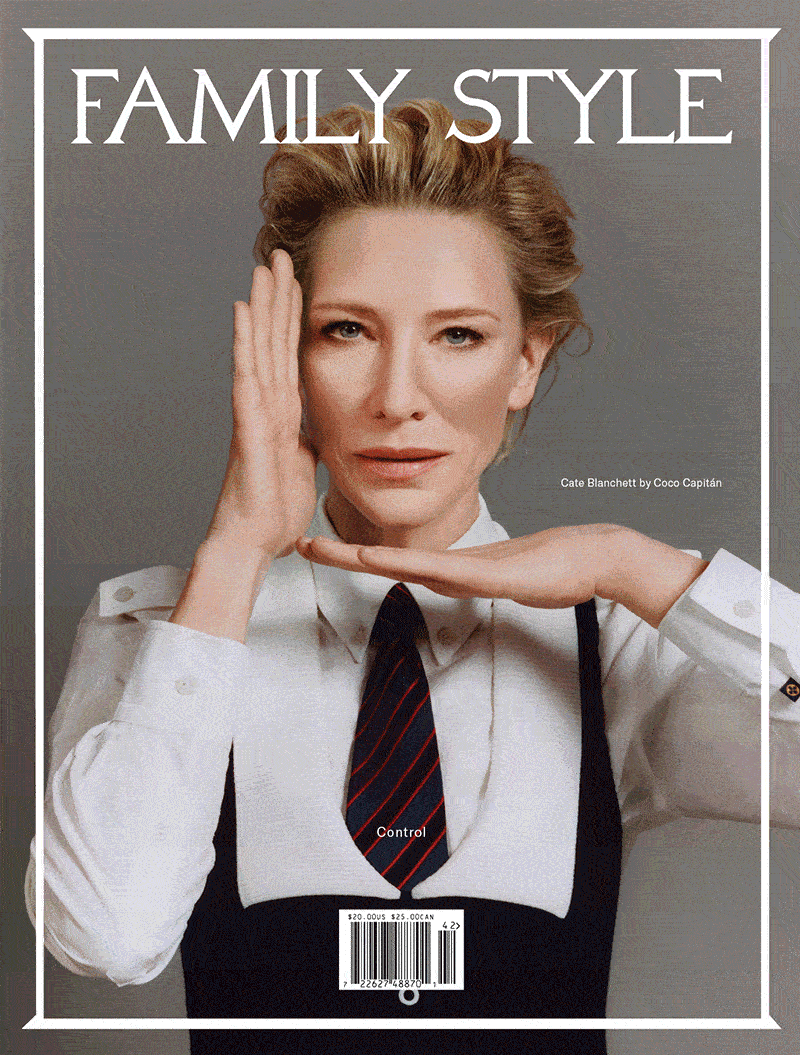
Honor Levy. Image courtesy of Olivia Parker and Parker Hao.
Honor Levy recently tabulated the ubiquity of certain words in her debut book, a short story collection titled My First Book. Her characters are in their teens or early 20s. They do lines of Vyvanse off an iPad, and fall in love on the Internet. While they worry about the degradation of the oceans and the evils of capitalism, they’re also deeply concerned with discovering who they are and what others—especially young men—might think. “For the rest of my life, I’m going to be curious and entranced by what the kids are up to,” the author predicts.
The story “Z Was for Zoomer” is a lexicon of words that build a subversive New York subculture the narrator recently left behind. The first entry is “autism,” followed by “based” and “cringe”; the last entry is “Zoomer.” Levy archives fleeting online jargon and youthful experience with a playful approach to language and a diaristic sensibility.
The 26-year-old writer loves hearing new words for the first time. “Skibbidy,” she offers, doesn’t mean anything. She has fun writing, and it is easy, as her reader or interlocutor, to also have fun. Asked to select a meaningful location for our interview, she chose the Revolving Lounge on the 35th floor of The Westin Bonaventure Hotel in downtown Los Angeles.
Levy is wearing a sweater embroidered with storybook scenes, which she ties and unties around herself throughout our interview. She drinks two Coronas with lime, switches to a Red Bull, and then takes out her Nicotine gum, a brand called Lucy. Over the course of an hour, twilit vistas of skyscrapers and distant hills shift around us. Levy points out the resemblance between a nearby building and an e-cigarette. She tells me about a restaurant where dining tables rise during the course of a meal, pranking unwitting patrons who end up with their food just below their face. Her simultaneous appetite for random facts, off-kilter observations, and philosophy contribute to her sharp, frenetic prose.
.avif)
Image courtesy of Honor Levy.
While Levy is often lauded for capturing Zoomer dialect (she rolls her eyes when I make this suggestion), she has an equal talent for sketching young men. In “Z Was For Zoomer,” two main characters emerge: Ivan, an older boyfriend, and Gideon, a friend who’s brilliant, oppositional, and doomed. Levy writes: “[Ivan] tells me that Gideon crossed the line a long time ago, that he is no longer an edgelord with an internship. Now he’s a fascist with a government grant.” In “Good Boys,” a short story first published in The New Yorker, boys on a foreign rooftop denigrate girls as “dogs” for infractions that range from asking how high the ceilings are to wanting to be held after sex.
My First Book features many stories that Levy wrote while at Bennington College. Bret Eason Ellis, another alumnus who captured youth culture and found quick literary success, is a clear influence. David Foster Wallace’s appropriation of marketing language and Eve Babitz’s airy touch and dissection of Los Angeles youth also find their way into Levy’s prose. The writer grew up here and, after a brief stint in New York, has moved back. Gian DiTrapano, the edgy, independent publisher of Tyrant Books, was an early supporter of Levy’s writing. When he passed in 2021, Penguin Press picked up the in-progress story collection.
Levy’s keen ear for how “good boys” and “bad guys” speak makes an eternal theme—masculinity—feel fresh. “It’s crazy that in this world, there are men and women, boys and girls. Like, what the hell?” she says. “And then when you put them together, they make a new one?” She fears this perspective might get her canceled, though the point feels progressive: Notions of gender and reproduction are strange and worthy of creative reimagining. “My friends used to joke: ‘Why are boys your muses?’” Levy says. “I used to be so interested in what’s wrong with the boys. But I think girls are just as lost. Now, it’s lost vibes all around.”
My First Book by Honor Levy available online now.







.avif)



.avif)

